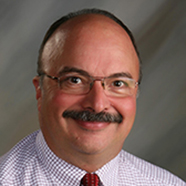Following Jesus will take us to unexpected places

Tim Irwin
By Tim Irwin
Solemnity of the Ascension of the Lord/May 13
Acts 1:1-11; Psalm 47:2-3,6-7,8-9; Ephesians 1:17-23 or Ephesians 4:1-13; Mark 16:15-20
The next two Sundays recount the most profound change to have ever occurred in the history of Christianity. The departure of Jesus this week and the descent of the Holy Spirit at Pentecost next week marks the passing of the torch from Our Lord to the Apostles. To really grasp the significance, imagine what it would have been like to be in the disciples’ sandals. No Vatican City, no worldwide college of bishops, no 1 billion Catholics in the world. Just a small band of average folks about to embark on the adventure of a lifetime.
Two questions would have been the foremost concerns for these disciples: How will we stay in touch with Jesus after He ascends and just exactly how long will it be until he returns? The readings for the Ascension of the Lord address these questions and the answers were not what they expected.
The first reading comes from the Acts of Apostles, which is the sequel to the Gospel according to St. Luke. Luke addressed this work, as he did his Gospel, to Theophilus, meaning “Friend of God.” He reviews his goal in writing the Gospel, then he answers one of those two key questions. “John baptized with water, but in a few days, you will be baptized with the Holy Spirit.” This is how Jesus will stay in touch with His disciples.
The Apostles ask Jesus, “When will you restore the Kingdom of Israel?” In other words, when will you return in glory — mission accomplished? Jesus answers, “It is not for you to know the times or seasons that the Father has established by his own authority. But you will receive power when the Holy Spirit comes upon you, and you will be my witnesses in Jerusalem, throughout Judea and Samaria, and to the ends of the earth.” Did Jesus say, “To the ends of the earth?” That’s a place none of them had ever visited. Nobody had. So, our mission won’t be accomplished any time soon. That’s not the answer they were expecting.
UNITY OF FAITH
The second reading comes from the Letter to the Ephesians. The Church offers a number of options for the Holy Mass. In any case, the message remains the same. Christ is the head of the Church and we, the disciples, are to make the proclamation of salvation everywhere, even to the ends of the earth. To accomplish this challenging endeavor requires both a unity of faith, celebrated then and now in the sacramental life of the Church, and a diversity of ministries. Paul says, “And he gave some as apostles, others as prophets, others as evangelists, others as pastors and teachers, to equip the holy ones for the work of ministry, for building up the body of Christ, until we all attain to the unity of faith. . . .”
The Gospel consists of the Commission of the Eleven from St. Mark. As with the versions in Matthew and Luke, the point is clear. Jesus says, “Go into the whole world and proclaim the gospel to every creature. Whoever believes and is baptized will be saved; whoever does not believe will be condemned.”
A lot has changed in 2,000 years, but the challenge of being a disciple remains the same. To fill those sandals, we need the unity of faith celebrated in the sacramental life of the Church, especially the Holy Mass. Love Christ and share that love with as many people as possible. That’s how we proclaim the Gospel and help to sanctify our little part of the world — even to the ends of the earth.
—
TIM IRWIN teaches at Peoria Notre Dame High School, where he chairs the Theology Department. He is a member of St. Mark Parish in Peoria.





